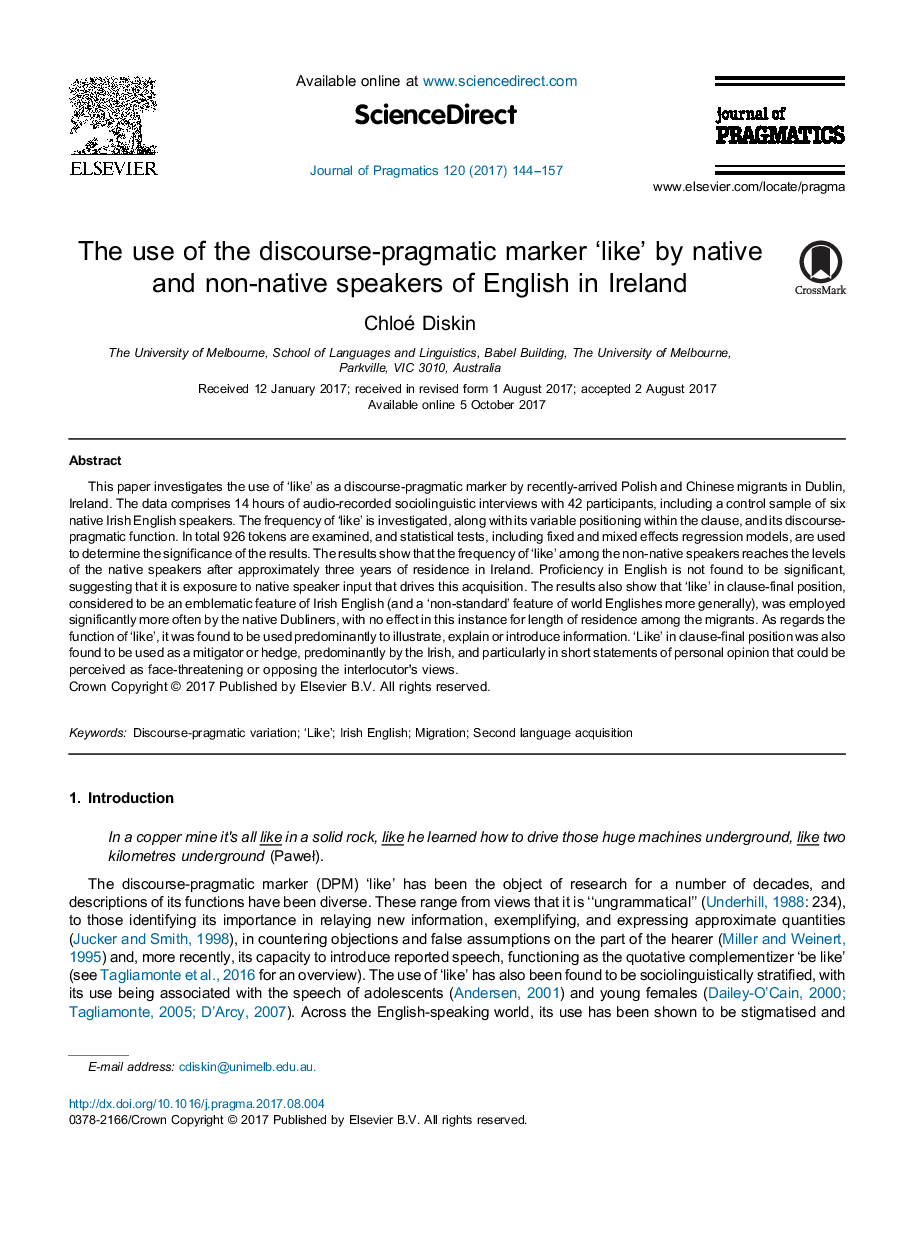| کد مقاله | کد نشریه | سال انتشار | مقاله انگلیسی | نسخه تمام متن |
|---|---|---|---|---|
| 5042618 | 1474680 | 2017 | 14 صفحه PDF | دانلود رایگان |
- Length of residence affects the acquisition of 'like'.
- Clause-final 'like' over three times more frequent in the speech of native speakers.
- Clause-final 'like' used to mitigate or hedge short statements of personal opinion.
This paper investigates the use of 'like' as a discourse-pragmatic marker by recently-arrived Polish and Chinese migrants in Dublin, Ireland. The data comprises 14Â hours of audio-recorded sociolinguistic interviews with 42 participants, including a control sample of six native Irish English speakers. The frequency of 'like' is investigated, along with its variable positioning within the clause, and its discourse-pragmatic function. In total 926 tokens are examined, and statistical tests, including fixed and mixed effects regression models, are used to determine the significance of the results. The results show that the frequency of 'like' among the non-native speakers reaches the levels of the native speakers after approximately three years of residence in Ireland. Proficiency in English is not found to be significant, suggesting that it is exposure to native speaker input that drives this acquisition. The results also show that 'like' in clause-final position, considered to be an emblematic feature of Irish English (and a 'non-standard' feature of world Englishes more generally), was employed significantly more often by the native Dubliners, with no effect in this instance for length of residence among the migrants. As regards the function of 'like', it was found to be used predominantly to illustrate, explain or introduce information. 'Like' in clause-final position was also found to be used as a mitigator or hedge, predominantly by the Irish, and particularly in short statements of personal opinion that could be perceived as face-threatening or opposing the interlocutor's views.
Journal: Journal of Pragmatics - Volume 120, October 2017, Pages 144-157
